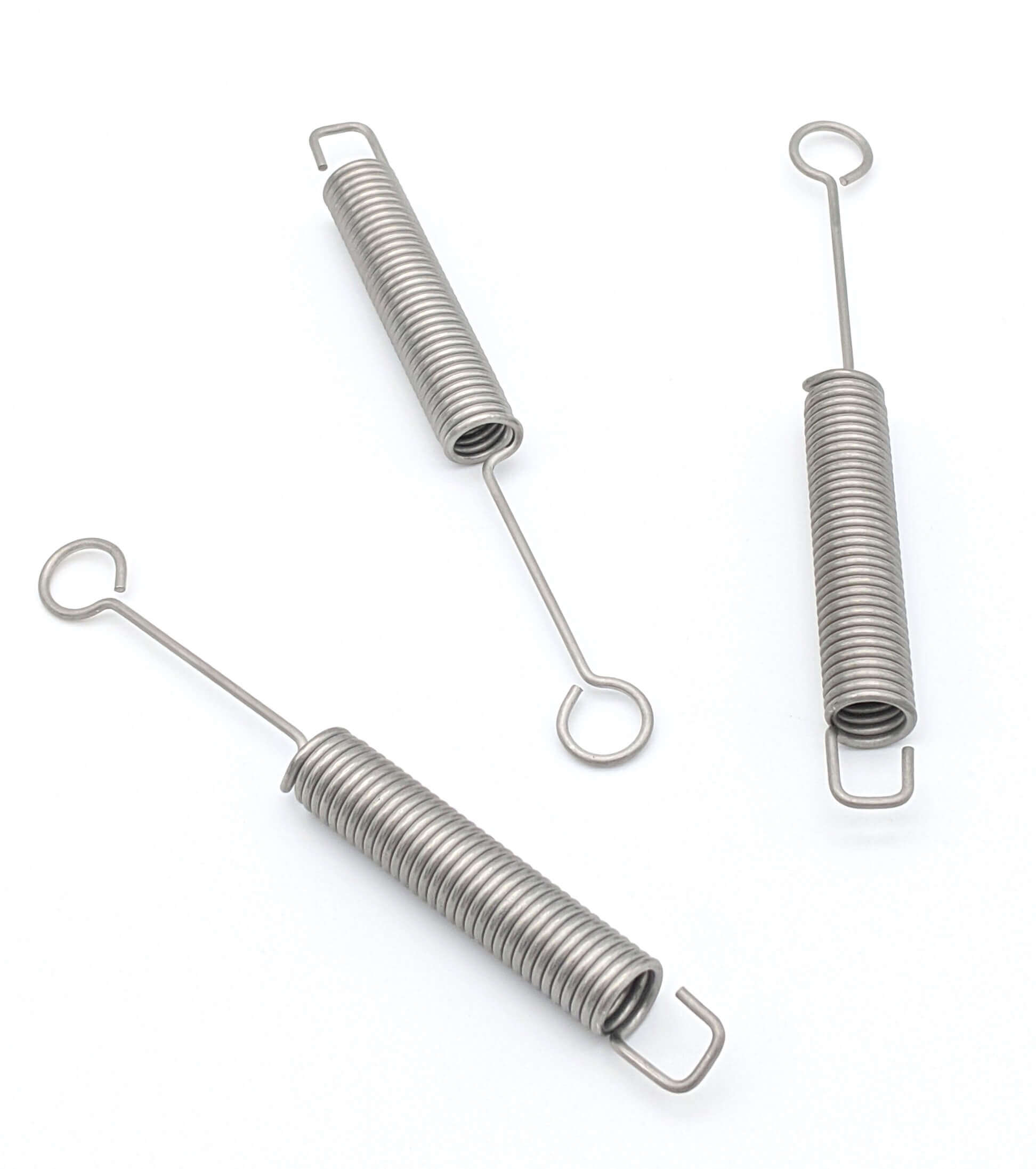Get unique, complex parts easily. No matter your requirements, Chaoyi Spring creates hard-to-produce coil springs and wire forms.
Let us help you create the custom wire form you need, from S-hooks and J-hooks to utility hooks and more.
We work closely with customers across a wide range of industries, helping them design and manufacture made-to-order parts.
Why choose Chaoyi Spring? We prioritize customer-focused collaboration, modern equipment and the latest technology to make your parts per print.
Find the information and guidance you need, from measuring a spring to learning about materials, placing an order and much more.
When it comes to your garage door, the springs are the unsung heroes, silently working to lift and lower your heavy door with ease. But did you know there are


When it comes to your garage door, the springs are the unsung heroes, silently working to lift and lower your heavy door with ease. But did you know there are two main types of springs used in garage doors: torsion springs and extension springs? Both serve the same purpose, but they operate in drastically different ways, and choosing the right one for your garage door can impact its performance, safety, and longevity.

Torsion springs are the workhorses of modern garage doors. They're typically found on heavier, more modern garage doors and are known for their robust power and durability. Installed above the door, these powerful springs are wound tightly, storing a significant amount of energy. When you open the door, the spring unwinds, providing the force needed to lift the door. The coiled spring is attached to a shaft, which rotates to release the energy.
One major advantage of torsion springs is their compact design. They take up less space than extension springs, allowing for a cleaner and more streamlined look in your garage. They are also more efficient, requiring less effort to open and close the door. This efficiency can also mean that they last longer than their extension spring counterparts.
However, torsion springs are not without their drawbacks. They can be more expensive to install than extension springs, as they require professional expertise and specialized equipment. Moreover, they are under immense tension, making them a potential safety hazard if not installed and maintained correctly. A broken torsion spring can cause serious damage and injury, making it crucial to seek professional assistance when dealing with these springs.
Extension springs, the older and more common type, are found on lighter garage doors. These springs are located on either side of the door, running parallel to the track. As the door opens, the springs stretch, providing the necessary force to lift the door.
One of the key advantages of extension springs is their lower cost compared to torsion springs. This makes them an attractive option for homeowners who are on a budget. They are also considered relatively easy to install, although it is still recommended to involve a professional for safety reasons.
Despite their affordability, extension springs have some downsides. First, they take up more space than torsion springs, which can be a concern in smaller garages. Second, they are less durable and prone to wear and tear compared to torsion springs. Finally, because of their design, they can be noisy in operation.
The choice between torsion and extension springs depends largely on your garage door's specific needs and your personal preferences.
If you have a heavier, modern garage door, or you value space efficiency and quieter operation, torsion springs are the way to go. However, if you have a lighter, older garage door, or are on a budget, extension springs might be a better choice.
No matter which type you choose, it is crucial to ensure your garage door springs are properly installed, regularly inspected, and maintained. This will help to ensure the safe and efficient operation of your garage door for years to come.
Working with garage door springs is inherently dangerous. Both torsion and extension springs are under significant tension, and a sudden break can cause serious injury. Therefore, it is vital to take the following precautions:
Both torsion and extension springs play crucial roles in the smooth operation of your garage door. While each type has its advantages and disadvantages, understanding their key differences can help you make an informed decision for your garage door. Always remember to prioritize safety and consult a professional for installation, repair, and maintenance to ensure the longevity and optimal performance of your garage door.
Whether you go with the robust power of torsion springs or the classic dependability of extension springs, choosing the right spring type for your garage door is a critical step in ensuring its safety, longevity, and functionality. By making an informed decision and relying on professional expertise for installation and maintenance, you can enjoy the benefits of a well-functioning garage door for years to come.
Browse some of the custom wire forms and springs that we manufacture. Don’t see what you need? We specialize in made-to-order products that meet your application requirements.
Visit Our GalleryNeed a custom wire form or coil spring? We make it work. Fill out the contact form and a representative will respond within 1 business day. If you have a PDF or CAD file, you can submit to request a quote.